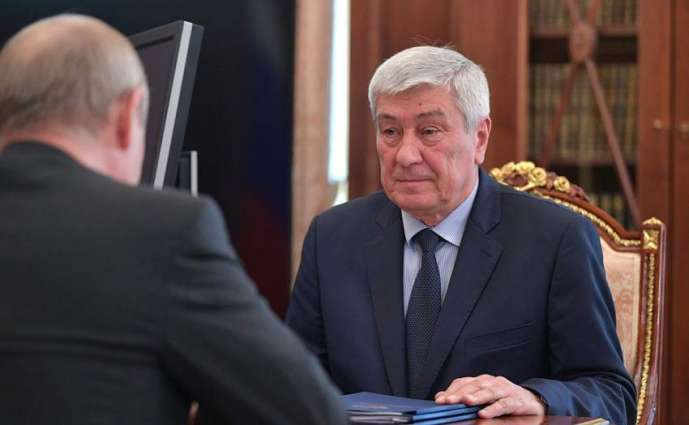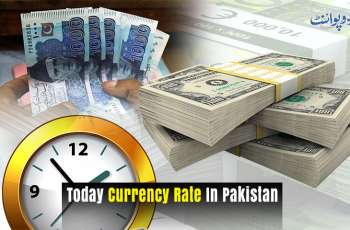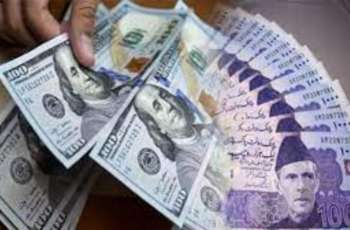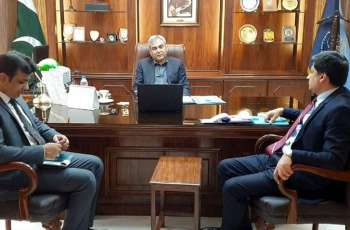Russia's Federal Financial Monitoring Service (Rosfinmonitoring) is working closely with the Federal Security Service (FSB) to reveal the foreign financing of non-governmental organizations' (NGOs) "destructive" activities, the agency's head, Yury Chikhanchin, said Monday at a meeting with Russian President Vladimir Putin
MOSCOW (Pakistan Point News / Sputnik - 11th March, 2019) Russia's Federal Financial Monitoring Service (Rosfinmonitoring) is working closely with the Federal Security Service (FSB) to reveal the foreign financing of non-governmental organizations' (NGOs) "destructive" activities, the agency's head, Yury Chikhanchin, said Monday at a meeting with Russian President Vladimir Putin.
Chikhanchin also told Putin about the results achieved by the agency, most problematic sectors of economy, international cooperation and use of modern technologies in Rosfinmonitoring's work.
The transcript of the meeting has been published on the Kremlin website.
Foreign financing continues to flow into Russian NGOs, but not everything is with good intent, Chikhanchin said.
"We are tracking about 80 billion [rubles, $1.21 billion], we are trying to figure it out," he said.
Rosfinmonitoring is working closely with the FSB to track this money, the agency's head noted.
"We work closely with the FSB for everyone. There are directions, sectors where the largest amount of funds is allocated, including the education system," Chikhanchin said.
He clarified that some part of the money coming from foreign sources was aimed at financing activities "with certain degrees of destructiveness."
Russian officials and lawmakers have repeatedly said that Western states, whether individually or via international institutions such as the European Union and NATO, increased their financing of the activity of organizations spreading pro-Western propaganda in Russia, including NGOs, media, educational institutions and social networks.
Rosfinmonitoring together with the Russian Supreme Court have prevented the transfer of about 130 billion rubles to the informal sector, Chikhanchin told Putin.
"The work with the Supreme Court is continuing, as I told you last time. We try to refer informal [sector] schemes to courts, in total, together with them, we managed to prevent the withdrawal ... of about 130 billion [rubles]," Chikhanchin said.
During his previous meeting with the president in July 2018, Chikhanchin reported that Rosfinmonitoring, jointly with the Russian Supreme Court had prevented the outflow of 50 billion rubles abroad.
Meanwhile, the watchdog and Russian Investigative Committee have proven the legalization of $350 million that was stolen through Promsvyazbank, Chikhanchin recalled.
"We worked well with the Investigative Committee ... One case is Promsvyazbank. We worked with 27 countries in search of assets. We managed to find these assets, seize them and even return them. About 7 billion [rubles] were seized. And as for legalization, most importantly is that we were able to prove that about $350 million were not just stolen, but legalized," he said.
Putin said that Rosfinmonitoring should pay special attention to state defense contractors involved in questionable operations.
"The contractors of the state defense order involved in dubious operations must, of course, be dealt with separately," Putin said.
Chikhanchin recalled that the agency had sent a group of experts to train compliance control officers of Promsvyazbank, which manages state defense contracts.
Putin noted that though a number of fictitious organizations involved in the activities of the state defense order had been reduced by about 25 percent, more efforts were needed to combat this practice.
"[The number of fictitious organizations is down] almost by a quarter, but still a lot [of them remain]," Putin said.
However, Rosfinmonitoring has serious questions about the construction sector, which remains the main consumer of informal financial services, Chikhanchin said.
At the same time, he noted that the informal cash turnover was still active and beginning to shift from the banking to the retail sector.
"Large stores sell goods for cash, and then begin to sell it directly, without collecting. Now we are working in this direction with the Central Bank and law enforcement agencies," the agency's head said.
Russia has agreed with 12 countries to coordinate the freezing of assets of persons recognized as terrorists, Chikhanchin told Putin.
"I would like to say a little bit about our international work. I must say that we have implemented a system of freezing [assets of] people who are on our list of terrorists in 12 countries. That is, we exchanged our lists," he said.
A list including 1,500 people was sent to the Central Asian countries, France and a number of other nations, the official added.
According to Chikhanchin, a number of the agency's projects have bean internationalized � countering the financing of the Islamic State terrorist group (banned in Russia) is just one example.
"Today, 40 countries have united around our project on an international platform," he added.
Russia, in collaboration with a dozen other countries, also revealed a major scheme for laundering money received from cocaine trafficking, Rosfinmonitoring chief said.
"I would like to say a few words about drugs. We have now worked with almost a dozen countries, we have entered a large scheme, we are currently implementing it. This concerns cocaine. In total, about a thousand people participated in the international scheme," Chihanchin said.
He also noted that a major part of the work in this area was being carried out by the Russian Interior Ministry.
In late February, Putin said at the expanded collegium of the ministry that additional measures were needed to counter illegal drug trafficking in Russia.
Rosfinmonitoring is working on creating a system to combat money laundering that is based on artificial intelligence, Chikhanchin said.
"According to your instructions, we have started working on creating artificial intelligence in cooperation with the [Russian] academy of Sciences and the education ministry in the field of combating money laundering. We have completed research work and are moving to design work. We are actively working together with our technical industrial partners VTB and Gazprom," he said to Putin.
This project has already shown good results, Chikhanchin added.




